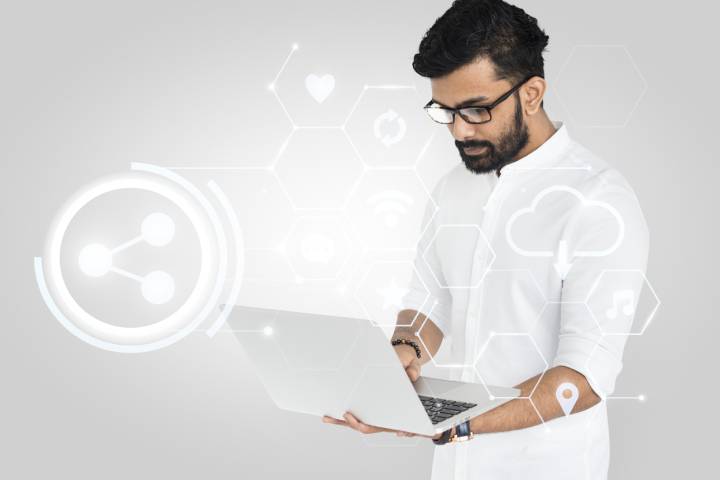How To Analyze And Manage Business Technology Risk?

Imagining how companies worked before the technology existed is almost impossible. Most of the changes that this has brought have been and are favourable for organizations. However, they also pose a challenge in different areas, especially in dealing with technological risk. Businesses face many types of technology risks, especially those associated with information security incidents, cyber-attacks, password theft, service interruptions, data storage, and more. Nowadays, it is essential to have a technological risk management and prevention strategy capable of anticipating the different problems that may arise before they appear and become a functional and economic catastrophe for the company. Here we tell you more.
Table of Contents
What Is The Technological Risk
To understand precisely what your company is facing, you should know that technological risk consists of the possibility that any failure in its information technology systems disrupts the organization’s operation. In many cases, these failures lead to financial losses, interruption of processes, or damage to the company’s reputation.
What Technological Risks Does A Company Face
Perhaps the most significant threat companies see today when managing risk is a data breach. However, other technological risks must be considered to avoid them and drive them appropriately:
- The Obsolescence Of Software: Information systems become obsolete and vulnerable. That is why companies must make version changes that can ensure the operation of these systems, thus minimizing technological risk. In this sense, working with cloud systems is the best solution to guarantee up-to-date and secure systems operation since their providers are responsible for maintaining the software.
- Hardware Obsolescence. In the same way that systems change very quickly, it is also inevitable that physical resources will soon become obsolete, not because the device becomes obsolete or is no longer manufactured, but because technological innovation forces it to adapt to the technical requirements of the devices. Systems for their efficient operation.
- Backups: When companies work with local systems, unfortunately, not all are aware of the importance of performing backups frequently and regularly. However, a task that can be avoided when working with cloud storage systems, since in these cases, the backups are carried out automatically and on a scheduled basis.
- Infrastructure: If the company decides to have its own IT infrastructure, that is, to manage all the software and hardware where the information is collected, stored and contained, it must consider that it has to have the physical space and technical human resources for its proper operation.
- Cybersecurity: The risk of data and privacy breaches is one of the most worrying companies today. Cyberattacks increase each year considerably, resulting in millions of dollars in losses for organizations.
- Technological Resilience: Technology is changing by leaps and bounds, and companies are constantly challenged to adapt to change, remain competitive, and balance technology and sustainability. Companies that are unwilling to transform will undoubtedly cease to be competitive in the medium or long term.
How To Minimize Technological Risks
The best way to protect yourself against technology risk is to develop a comprehensive risk management plan. It is a set of policies and practices applied at a structural level, both on the data and an organization’s devices.
It is the responsibility of the risk management teams to define the technological risk plan, identify and analyze the challenges and threats the company faces, proactively manage these risks through implementing strategies, and create contingency actions.
The following must be taken into account:
- The Vital Technological Risks And Their Possible Impact: Your company must identify the critical areas of concern and measure the probability of a failure and the effect it would have on its activities. To assist in this process, many organizations hire IT specialists.
- Security Threats: This can include external threats (such as cybercrime or terrorism) and internal threats (for example, distributing restricted information or attacks on systems and information access controls).
- The Technological Risk Of Hardware And Software Failures: The organization must consider the risk of hardware and software failure for itself and operations in general.
- Technology Outsourcing: It is widespread for companies to hire an external company to take care of systems development and maintenance, network administration, disaster recovery services, application hosting, and cloud computing. In this sense, it is essential to choose suppliers carefully, studying their viability, capacity, reliability, track record and financial position.
How To Conduct A Technology Risk Assessment
Before starting the implementation of different systems that help mitigate technological risks in your company, we recommend that you carry out an analysis of the current situation based on the following:
- Make a complete list of the applications and systems you use.
- Evaluates the software versions that are in use and identifies the date of their last update.
- Determine the servers and data centres in use.
- Analyze the link between the software and the servers.
- Identify what security systems are in place.






